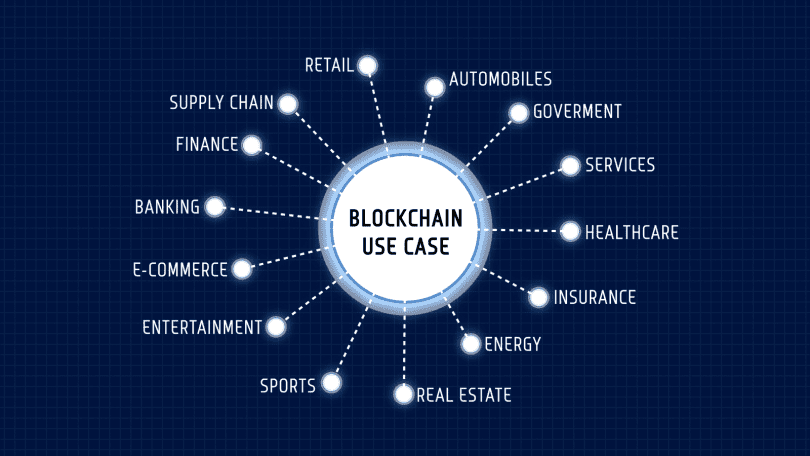What is the Purpose of Blockchain Technology
Blockchain technology serves to securely store and transfer digital assets or information through a decentralized system. It eliminates intermediaries, enhances transparency, and ensures immutable records.
In today's digital age, blockchain technology has emerged as a highly disruptive innovation with multifaceted applications across various industries. From revolutionizing financial transactions to enhancing supply chain management, the purpose of blockchain technology extends far beyond just cryptocurrency.
By providing a secure, transparent, and efficient way to record and verify data, blockchain has the potential to transform traditional processes and drive innovation.
Its decentralized nature enables trustless transactions and ensures the integrity of information, making it a powerful tool for the future of technology and beyond.
Understanding Blockchain Technology
Definition Of Blockchain
Blockchain is a decentralized digital ledger system.
How Blockchain Works
Blockchain securely stores transactional records in blocks.

Credit: www.questglt.com
Applications Of Blockchain Technology
Blockchain technology serves as a secure, decentralized platform ensuring transparent transactions without intermediaries. Its purpose lies in facilitating trustless digital exchanges, enhancing data integrity and streamlining operations across various industries.
Cryptocurrencies
Blockchain technology is most notably used in cryptocurrencies like Bitcoin. It ensures secure and transparent peer-to-peer transactions without the need for a central authority.Supply Chain Management
In supply chain management, blockchain enhances transparency and traceability of products from manufacturer to consumer.Healthcare
Blockchain in healthcare safeguards patient data and streamlines sharing among authorized parties.Voting Systems
For voting systems, blockchain provides a tamper-proof platform, ensuring fair and secure elections.Advantages Of Blockchain Technology
Blockchain technology has gained significant popularity in recent years due to its numerous advantages. This revolutionary technology offers enhanced security, transparency and accountability, as well as efficiency and cost savings. Let's explore each of these advantages in detail:
Enhanced Security
Blockchain technology provides enhanced security through its decentralized and immutable nature. Unlike traditional centralized systems, where data is stored in a single location, blockchain distributes data across a network of computers, known as nodes.
Each transaction or data entry is grouped into a block, cryptographically linked to the previous block, creating a chain of blocks. This secure chain of information makes it extremely difficult for hackers to manipulate or alter data.
Furthermore, the use of cryptographic algorithms ensures that data is encrypted and can only be accessed by authorized parties, adding an additional layer of protection against unauthorized access. With blockchain technology, organizations can confidently secure their data and protect it from cyber threats.
Transparency And Accountability
Blockchain technology provides transparency and accountability by offering a shared and decentralized ledger. Every transaction that occurs on the blockchain is recorded and verified by multiple participants in the network.
This shared ledger eliminates the need for intermediaries or third parties, reducing the chances of data manipulation or fraud. Additionally, blockchain's immutability ensures that once a transaction or data entry is recorded on the blockchain, it cannot be altered or deleted.
This transparency and immutability foster trust among network participants, as each party can verify the accuracy and integrity of the data. Moreover, blockchain's transparency enables auditors and regulators to easily access and review the transaction history, ensuring compliance with industry regulations and standards.
Efficiency And Cost Savings
Blockchain technology offers significant efficiency and cost savings compared to traditional systems. By eliminating intermediaries or middlemen, such as banks or clearinghouses, blockchain streamlines processes and reduces the time required for transaction settlements.
Additionally, the automation and smart contracts capabilities of blockchain enable the enforcement of predefined rules and conditions without the need for manual intervention. This automation reduces human errors and delays, leading to faster and more efficient transactions.
Furthermore, blockchain eliminates the need for manual reconciliation, as all parties on the network have access to the same data, reducing administrative costs. Overall, blockchain technology enhances operational efficiency and reduces costs for businesses across various industries.
Challenges And Limitations Of Blockchain Technology
Scalability
Scalability is a critical challenge for blockchain technology. As the number of transactions increases, the network may face performance issues. This can lead to slower transaction processing times and increased fees, making the technology less practical for widespread adoption.
Regulatory Concerns
Regulatory concerns pose a significant limitation to blockchain technology. The lack of standardized regulations across different jurisdictions can create uncertainty for businesses and governments looking to implement blockchain solutions. Without clear guidelines, companies may hesitate to fully embrace the technology.
Energy Consumption
Energy consumption is another major concern with blockchain technology. The process of validating transactions through mining requires a substantial amount of computing power, leading to significant energy consumption. This not only contributes to environmental issues but also raises questions about the sustainability of blockchain networks.
Blockchain Use Cases
Blockchain technology serves to bring transparency and security to various industries, enabling secure transactions without the need for intermediaries. By decentralizing data storage and verification, blockchain facilitates trustworthy exchanges, streamlines processes, and enhances overall efficiency. Blockchain finds utility in supply chain management, healthcare, finance, and more.
Blockchain technology, known for its secure and decentralized nature, is revolutionizing industries with its diverse range of use cases. Its unique features, including immutability and transparency, have paved the way for innovative solutions across various sectors. From financial services to real estate and digital identity, blockchain is disrupting traditional systems and opening up new opportunities for efficiency, security, and trust.Financial Services
Blockchain technology is transforming the financial services industry by offering secure and transparent transactions through decentralized digital ledgers. Applications of blockchain in financial services include: - Cryptocurrencies: Enabling peer-to-peer transactions without the need for intermediaries. - Smart Contracts: Automating contractual agreements and reducing reliance on third-party intermediaries. - Cross-Border Payments: Facilitating swift and cost-effective international transactions.Real Estate
The real estate sector stands to benefit from blockchain technology in several ways, including: - Property Tokenization: Fractional ownership of real estate assets through digital tokens. - Smart Property Contracts: Streamlining property transactions and automating lease and rent payments. - Title Registry: Secure and transparent recording of property ownership and transfer of titles.Digital Identity
Blockchain technology presents innovative solutions for managing digital identities, enhancing security, and privacy. Use cases in digital identity include: - Self-Sovereign Identity: Empowering individuals to have control over their personal information and digital identities. - Credential Verification: Secure and tamper-proof verification of academic credentials, certifications, and professional licenses. - Authentication Systems: Strengthening identity authentication processes while minimizing the risk of fraudulent activities.

Credit: builtin.com
Future Potential Of Blockchain Technology
Blockchain technology, with its decentralized nature and transparency, has already transformed various industries by streamlining processes and enhancing security. The future potential of blockchain technology is vast and encompasses several exciting possibilities. In this section, we will explore the integration of blockchain with the Internet of Things and the concept of a decentralized internet.
Integration With Internet Of Things
The integration of blockchain technology with the Internet of Things (IoT) holds immense promise for the future. Imagine a world where smart devices, equipped with sensors, can securely communicate and authenticate transactions with each other without the need for intermediaries. Blockchain can provide a decentralized and tamper-proof infrastructure for IoT devices to interact, share data, and execute transactions autonomously.
Blockchain can ensure the integrity and accuracy of IoT data by offering a transparent and immutable ledger. The distributed nature of blockchain enables real-time updates across all participating devices, reducing the risk of data manipulation or fraud. Moreover, smart contracts on the blockchain can facilitate automated and trustless transactions between IoT devices based on predefined conditions.
Decentralized Internet
Another compelling future potential of blockchain technology is the concept of a decentralized internet. Currently, the internet relies heavily on centralized intermediaries such as internet service providers, social media platforms, and cloud storage providers, which have control over users' data and online activities. This centralization creates vulnerabilities and limits user autonomy.
By leveraging blockchain technology, we can envision a decentralized internet where users have control over their personal data and can securely interact directly with each other. With blockchain, users can authenticate their identities, protect their privacy, and securely store and share data without the need for a centralized authority. This peer-to-peer network can foster a more inclusive, democratic, and censorship-resistant online environment.
In addition, blockchain's distributed ledger can enhance security and prevent unauthorized modifications or breaches. Each transaction on the decentralized internet is recorded transparently and immutably, reducing the risk of data manipulation or fraudulent activities.

Credit: www.euromoney.com
Frequently Asked Questions On What Is The Purpose Of Blockchain Technology
What Is Blockchain Technology And How Does It Work?
Blockchain technology is a decentralized system that records transactions across multiple computers, ensuring security and transparency.
What Are The Practical Applications Of Blockchain Technology?
Blockchain technology is used in cryptocurrency, secure data storage, supply chain management, voting systems, and smart contracts.
Why Is Blockchain Considered A Secure System?
Blockchain is secure due to its decentralized nature, cryptographic encryption, and consensus mechanisms, making it resistant to tampering and fraud.
How Does Blockchain Technology Impact Traditional Industries?
Blockchain technology disrupts traditional industries by providing transparent, secure, and efficient solutions for data management and transaction processing.
What Are The Potential Future Developments In Blockchain Technology?
The future of blockchain technology may include advancements in scalability, interoperability, and integration with other technologies, such as IoT and AI.
Conclusion
In essence, blockchain technology serves a vital purpose in revolutionizing various industries. By eliminating intermediaries, providing transparency, and enhancing security, it enables decentralized digital transactions and data storage. From financial systems to supply chains, healthcare to voting systems, the potential applications of blockchain are expansive.
As technology continues to evolve, embracing blockchain can bring about greater efficiency, trust, and innovation. Harnessing this transformative power is key to unlocking a brighter future for businesses and individuals alike.






